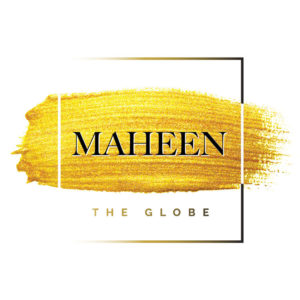SEATTLE, WA — Words are sacred and words matter. When a president refers to COVID-19 pandemic as “the Chinese virus” and “kung flu” – it will have consequences. The brutal killings of Asian Americans in Atlanta last Friday is not an isolated event. Since March 2020, about 3800 racist incidents against Asian Americans and Pacific Islanders (AAPI) have been reported, according to Stop AAPI Hate.
Since the incident, several rallies and events were planned in Seattle’s Chinatown International district and other regions of Seattle to raise awareness and demand action from political leaders and fight back against such attacks. Asian Americans have been the largest non-white population in this city.
Seattle History
Seattle has a racist history. In 1886, more than 200 people of Chinese descent were forcibly expelled from the waterfront. The same year, a mob drove out nearly all of Tacoma’s 350 Chinese residents to the north in Seattle. More than half of the Chinese who lived in Seattle a year earlier had left on their own. Many of those who remained behind lost their jobs. On March 30, 1942, Bainbridge was the first place in the country where Japanese American residents were forcibly removed from their homes under Executive Order 9066.
How is today’s Seattle looking for Asian Americans? I reached out to the AAPI community last week to ask how they are feeling in these times and what they think can be done to address these hate crimes.
Monica Beach
Monica is a Seattle social media content creator, and writer. She primarily focuses on supporting local, BIPOC-owned businesses.
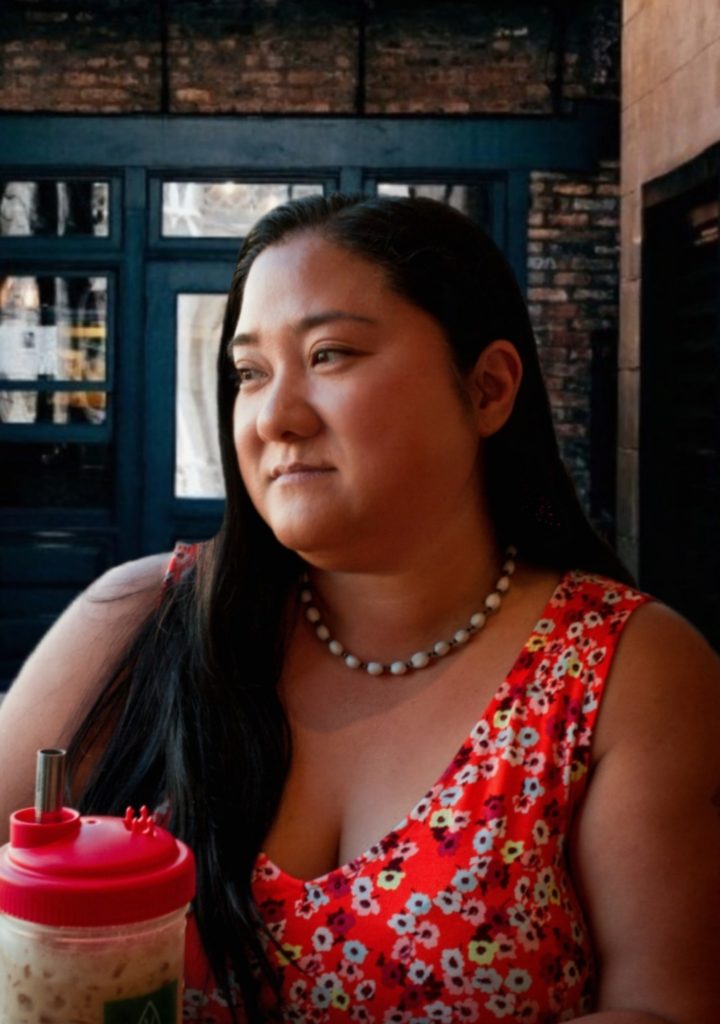
Tell us about your Asian roots.
I was born and raised in Hawaii with roots in Japan and the Philippines. I am half Japanese “Sansei” or third generation from Japan on my father’s side. My mother’s father came from the Philippines with his two brothers. On most days, I identify as Asian or mixed-race because I am also Native Hawaiian, Chinese, German and Spanish. My racial identity is a journey that continues to evolve each day.
How do you feel as an Asian American during this post-Trump and pandemic era?
I go through a cycle of numbness, grieve, and rage. Racism has always been here. The circumstances of the pandemic turned us into a captive audience. It is surreal, but not surprising. While the nation woke up to the murder of our Black siblings, the disappearance of our Indigenous sisters, the caging of our Latinx children, and the beatings of our AAPI community – it was something that we already knew. The last few years have given people permission to openly speak and act on their racism. The pandemic has caused us to feel and process things differently. The damage has been done.
From an Asian American lens, what do you think can be done to curb or decrease the hate crimes against Asians?
We need to collectively organize, educate, and act. Within our AAPI communities, we need to organize. While doing this, we can be trusted allies to our BIPOC siblings and specifically, condemn anti-Blackness and fight for Black liberation. We need to educate ourselves about the history of racism in the Seattle area and the civil rights leaders whose shoulders we stand on.
The violence is real, and we need to learn how to be safe and protect ourselves and others. Familiarize yourself with ways to report and keep your eyes open for possible crimes. If you are not comfortable reporting to the police, find a community organization that may be able to help.
Finally, we must act by voting and spending our values. Elected officials should look like us and represent our voices. Voting is a powerful tool for change. We also need to spend our values and put our dollars toward supporting BIPOC communities. These dollars should begin to shift to proactive strategies, rather than reactive ones. There is no magic switch to stop the violence because racism did not happen overnight.
Frances Hammond
Frances is a Seattle-based yoga and barre teacher.
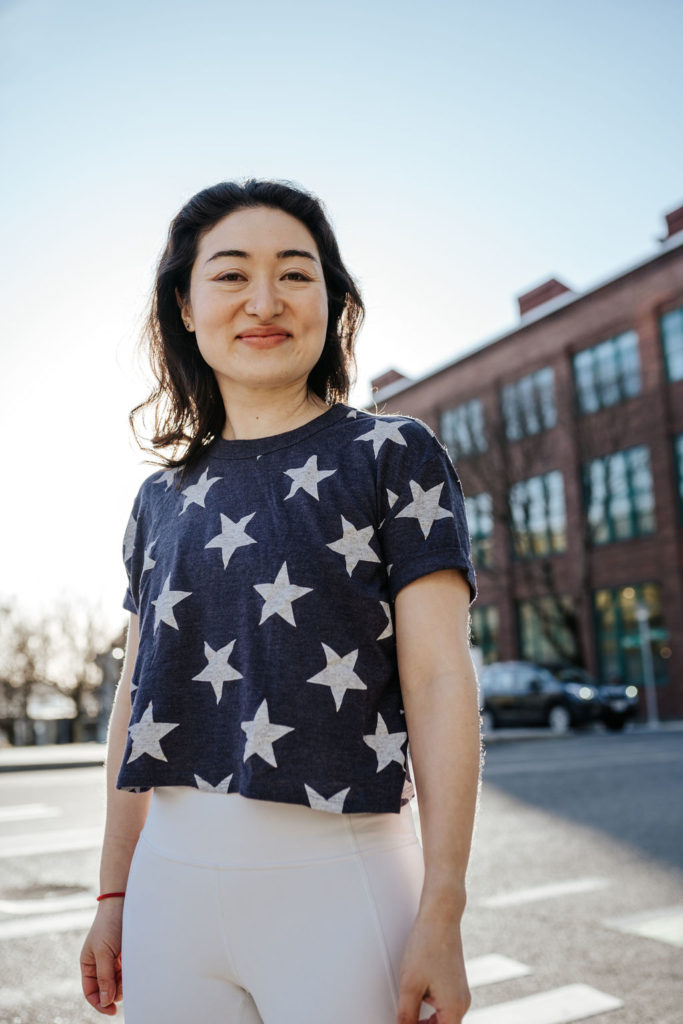
Tell us about your Asian roots.
I am half Japanese and have been balancing my bi-racial identity most of my life. People put me in a category they feel is most convenient for them and what they physically see. In the past this caused me to feel that my “other half” got ignored. As I grew older I saw the importance of speaking up for the half that needs to be heard.
How do you feel as an Asian American during this post-Trump and pandemic era?
It has made me critically look at past negative interactions, which I now realize were microaggressions from friends. I realize that the hurt and anger I have experienced from them wasn’t me being “oversensitive”. It has been a relief to have people listen and have those feelings validated. The realization that others have been feeling the same for a while makes me feel less alone but also sad. There are a lot of buried resentments from so many of us.
At the same time, I’ve been celebrating the resilience in my heritage too. I love going to the International District in Seattle and supporting the restaurants and shops. So many storefronts were vandalized last year but everyone came together to clean it up and paint beautiful murals.
From an Asian American lens, what do you think can be done to curb or decrease the hate crimes against Asians?
A week before the quarantine, my husband and I traveled to Chicago. The glares I received from people at the airport startled me. Some even made a point to physically shift away from me. This became progressively worse as the pandemic wore on. Yet, when you look at history, this is a common occurrence. It is so much easier to blame a group of people for problems.
I think it needs to start on a smaller scale. Look at how you treat and speak to your AAPI friend, spouse, or colleague. What do your jokes and off-hand comments you make about them say about your preconceived ideas and prejudices?
Vikki Nakamura
Vikki is a program manager at Windermere Services Company. She has lived in Seattle since 1999.
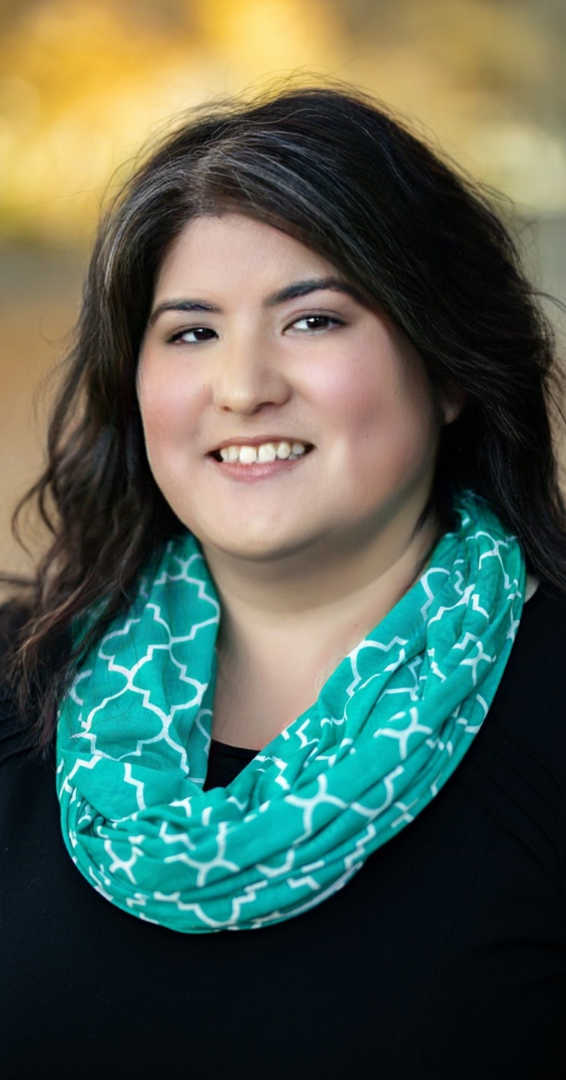
Tell us about your Asian roots.
My Asian roots are from Okinawa, Japan. Both of my grandfathers immigrated to Hawaii to work in the sugar cane plantations, where both had picture brides, and raised their families on the island of Oahu. My father was born in Hawaii, while my mom was born in Okinawa and came to the United States at age 20. My sister was born in Hawaii, while I was born in Alaska, but we were both raised in Alaska.
How do you feel as an Asian American during this post-Trump and pandemic era?
My emotions change daily. I have been sad, anxious, scared, and angry at the hate and violence against Asian Americans across the country, and in my own community. With the stress of the pandemic, getting out for a walk seems like the perfect solution. But for me, it causes more anxiety as I have to plan it around a safe time during the day when there are “enough” people around. I have to make sure I have a good plan to get to safety.
I don’t want to be fearful or overly cautious, but when you view reports like Stop AAPI Hate National Report (3/19/20 to 2/28/21) and it shows that your state is number three, you know you have to take the necessary precautions. It is getting harder for me to be me as I am always feeling like I need to adjust how I do things in order to keep myself out of danger, like not carrying a purse as it might make me an easier target. I am talking about it with friends and family, and it has also been interesting and also comforting in a way to read that these stories are not just your own.
From an Asian American lens, what do you think can be done to curb or decrease the hate crimes against Asians?
Education and advocacy are the biggest things that can be done to curb or decrease the hate crimes against Asians. I am not without my own biases and I am learning everyday about myself and others around me. When we educate each other, we can see that we all have stories, many of which have many similarities, and we see each other just as people trying to live our lives.
We must advocate for all Asian Americans and other marginalized groups because if we don’t, we will continue to get lost in the crowd. We must call things out, because while it can be a joke to some, it is seen as truth to others. We still have a lot of work to do but we must keep it going if we hope to get to a better place.
Author’s notes: In today’s America, it is pivotal to shape our narratives and words in a way that is inclusive of our BIPOC, and womxn communities. Racism is a virus; racist language is a virus. We can combat racism by first making changes within ourselves and use language and exhibit behavior that result in unison rather than division, inclusion rather than exclusion. Say NO to cancel culture!
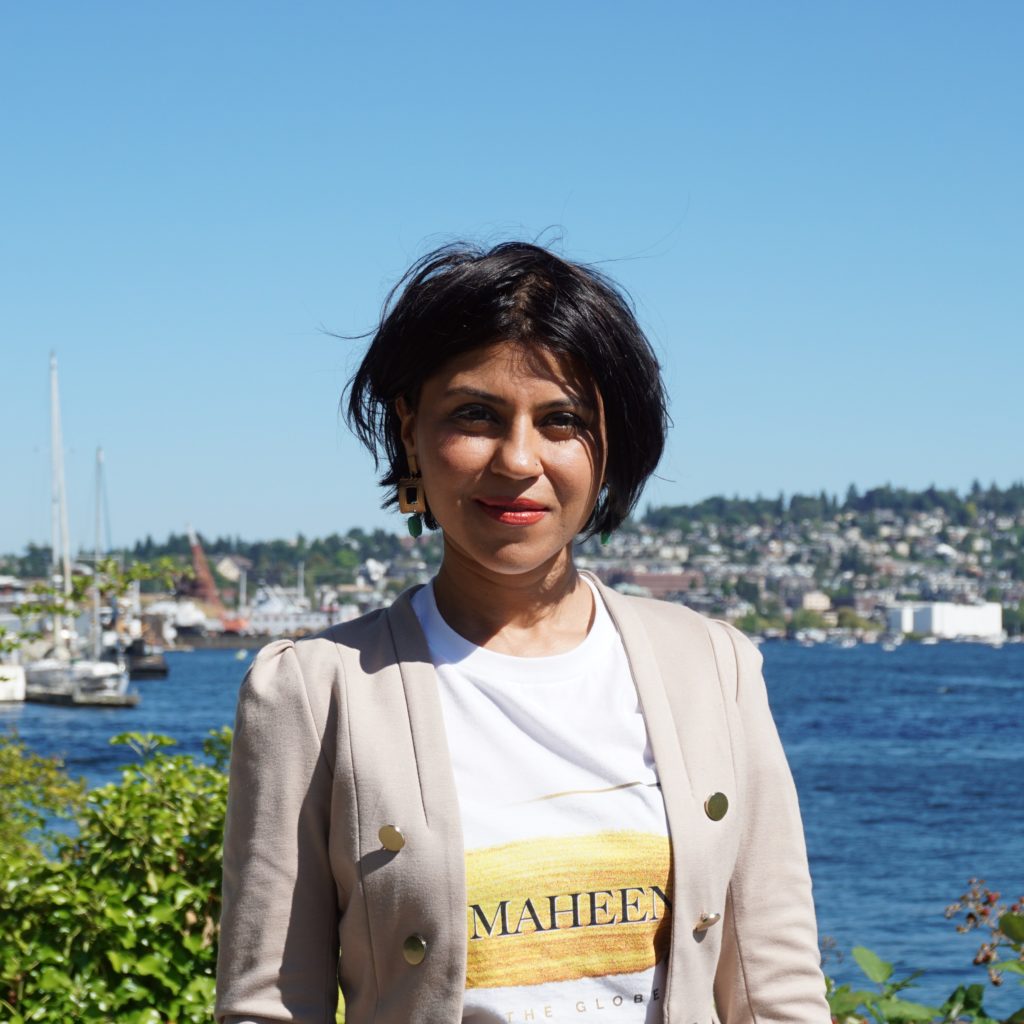 Maheen Mustafa is the CEO, Founder, Editor-in-Chief, and Senior Writer of Maheen The Globe (MTG) a Seattle-based global media outlet covering global stories and perspectives. She covers beats social impact, race, wellness, food, education, space, fashion, culture, business, climate and music on MTG. You can email your pitch to her at [email protected]. Her Twitter handle is @MaheenM_.
Maheen Mustafa is the CEO, Founder, Editor-in-Chief, and Senior Writer of Maheen The Globe (MTG) a Seattle-based global media outlet covering global stories and perspectives. She covers beats social impact, race, wellness, food, education, space, fashion, culture, business, climate and music on MTG. You can email your pitch to her at [email protected]. Her Twitter handle is @MaheenM_.
